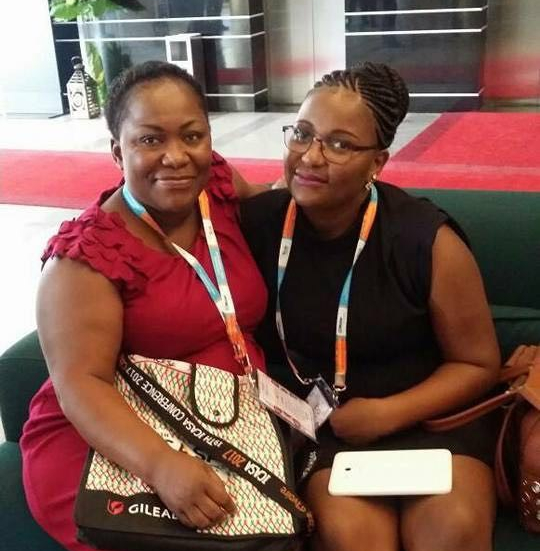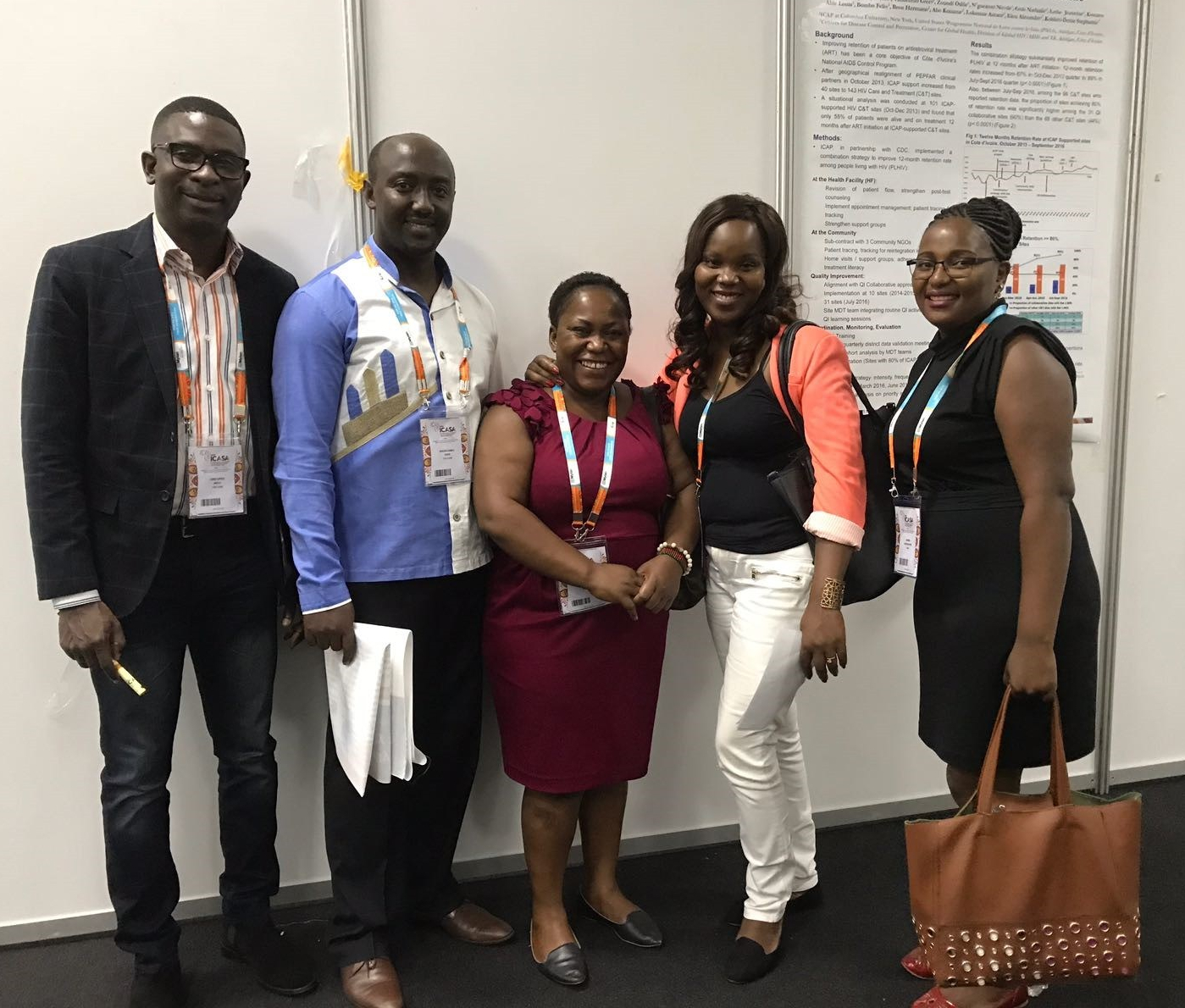Event Date
Written by Barbara Kapenuka and Eddah Nyirenda, Outreach Workers, Pakachere Institute for Health & Development Communication

In August 2017, the LINKAGES Malawi project team sat in the conference room at Pakachere, a local implementing partner in Malawi. Key to the discussion that day was learning how to develop abstracts. This was new for most of us as outreach workers. Prior to the session, we assumed abstract writing was a task for scientists and other technical workers, but not us. As we sat there, however, we decided to challenge ourselves and develop an abstract. With support from the LINKAGES team, we came up with ideas that we later developed into two full abstracts to submit to ICASA 2017. One of the abstracts highlighted the gains in care and treatment for female sex workers following the introduction of peer navigation. The second abstract was on the impact of intensive peer outreach in reducing the prevalence of sexually transmitted infections among sex workers.
Getting the good news
One day, we opened our computers and were excited to find emails from the organizers of the conference. Both of our abstracts had been accepted for poster presentations. Our excitement was strong, but a looming question remained: where we would find the financial support to travel to Abidjan? It was not long after receiving the communication on our posters that we also received even better news; we both had been awarded partial scholarships covering accommodation and part of registration. Despite this exciting news, we still did not have air tickets. We requested support from LINKAGES and then started hoping and waiting. There were times when we almost gave up, but we both got passports to make sure that we were ready for travel if things were to work out. A few weeks before the conference, we were told that LINKAGES was supporting our travel and visas. Saying that we were excited would be an understatement. We were overwhelmed with the prospect of traveling internationally and attending our first ever international conference, especially in an area that is very dear to our hearts.
The conference
We traveled to Abidjan, Cote d’Ivoire, on December 3rd and arrived in the late afternoon the next day. We were welcomed with hot, humid air and people who could not understand us even when we spoke English. Abidjan turned out to be one of the most vibrant cities we had ever been to.
We arrived at the venue the next morning refreshed and ready for the conference. We registered, got our name tags, and sat with our team to select the sessions that would be most applicable to our work. We then toured the venue to familiarize ourselves with the place; it was so beautiful and majestic. The community village was the most thrilling place, with loud music, dancing, and even a condom campaign going on.
The first session we attended was on PrEP for women. There were also members of key populations in the group and it was a lively session. PrEP is not a topic that we were very familiar with. Therefore, it was great to learn about some of the work that is happening in other countries like Kenya and South Africa. We learned that PrEP is a great tool for HIV prevention, which led us to wonder why we do not have access to it in our country.
Each day of the conference started with the main plenary. One of the most interesting sessions that we attended addressed issues on lack of involvement of young girls and adolescent women in the fight against HIV at the program level. Lillian Nworeko made a passionate plea asking for involvement of young women not just as beneficiaries, but as active agents for their own change. Another issue that came up during the main plenary was the need to develop strategies that ensure key populations are not lost to follow up after they have been diagnosed with HIV.
Poster presentations
On Thursday, December 8th, we woke up very early to get to the conference venue on time for our posters. This was the most exciting day for us as we got the chance to showcase our work under the LINKAGES project through our posters. What was most exciting was the interest that many participants had in our work. Some of them wanted to know how we were enrolling so many sex workers in the program and what strategies we were using to keep them in services across the cascade. Our poster on structural barriers also received feedback and questions. People wanted to understand what systems were in place under LINKAGES that help us to effectively respond to cases of violence. It was such a pleasure and honor to stand next to our posters, interact with people, and respond to questions. This was our greatest highlight of ICASA 2017.
Looking forward
We learned so much at the conference. Most importantly, we learned that we have the capacity to present the work we do and share about this exciting project with others. We returned home with motivation to work hard so we can have more opportunities to share the work of LINKAGES Malawi and Pakachere in the future.
